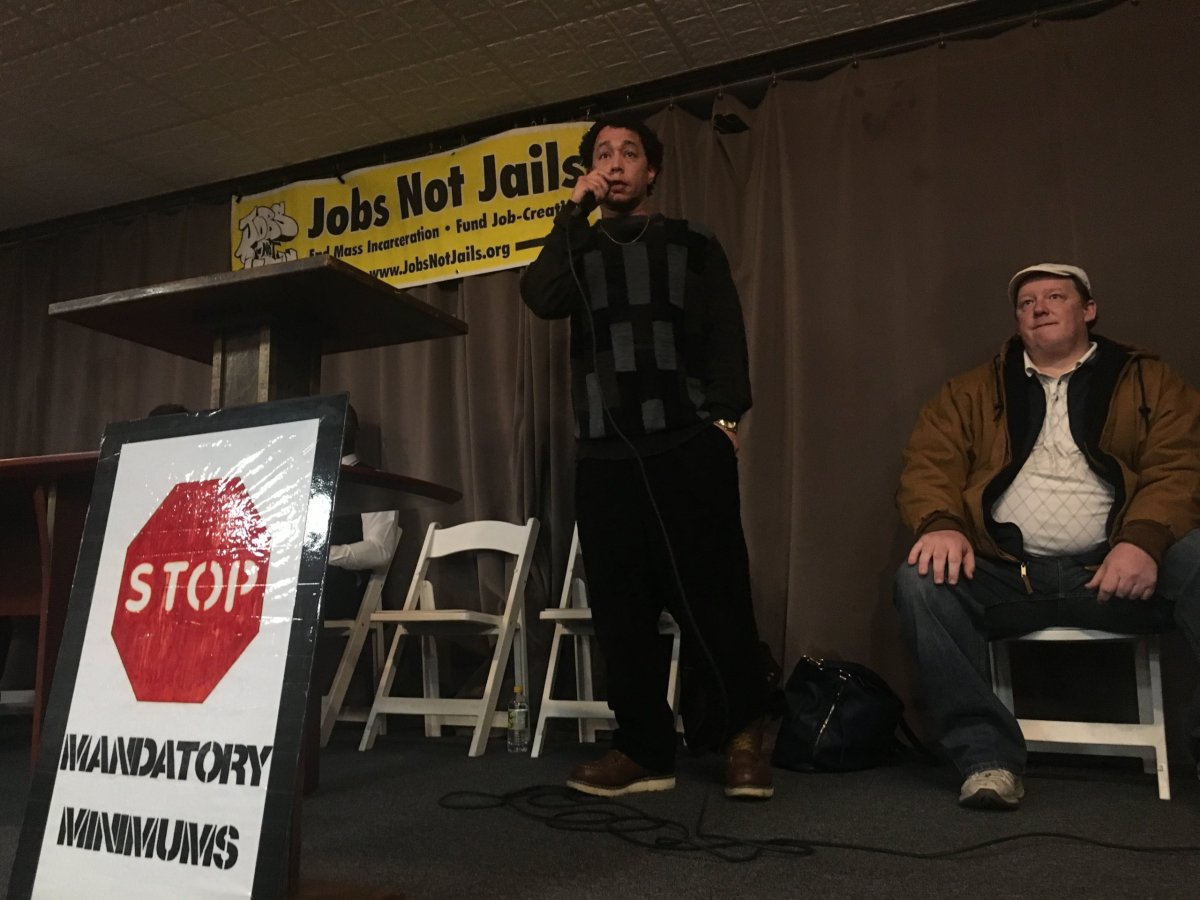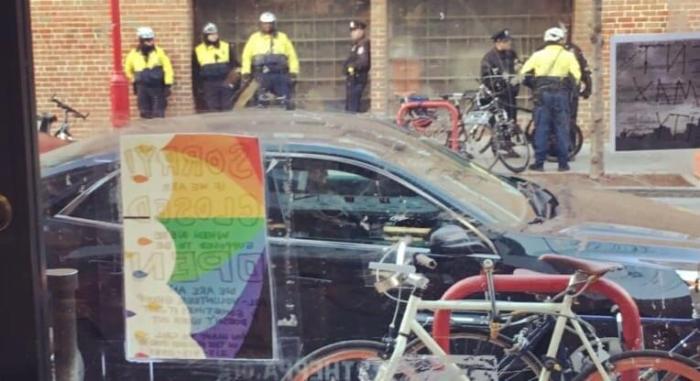Ending mandatory minimum sentences for drug offenses will be a top priority next year for criminal justice reform advocates, who said they are worried legislation from Beacon Hill leaders will not address all aspects of the system. The Jobs Not Jails coalition rallied Tuesday at a Bowdoin Street church, where SEIU Local 509 deputy political director Calvin Feliciano said mandatory minimum reform is “the number one thing we need to nail down.” “If we just do a couple things and we don’t really deal with the major, major problem, we’ll be in the same place in two years,” Feliciano said.
Ralliers called on Gov. Charlie Baker, House Speaker Robert DeLeo, Senate President Stan Rosenberg and Supreme Judicial Court Chief Justice Ralph Gants to include the elimination of mandatory minimum sentences for nonviolent drug crimes and other reforms in criminal justice legislation they are expected to file together in January. The four state leaders sought assistance from outside researchers in August 2015 to study the state’s justice system, with an eye toward instituting new cost-effective and data-driven practices. That review, conducted by the Council on State Governments Justice Center, is nearing completion, with policy recommendations expected to be discussed this month and a bill filed in January when the new legislative session begins. “Right now we’re really, really worried about what could be coming out of the Council on State Governments reports,” Feliciano said. “Really worried. Y’all get that? Very worried. You should be too.” He said the group’s fear is that the reforms suggested will consist of “a little tinkering here, a little tinkering there, make some things easier on a small group of people, and they’re not going to do enough where it really counts.” The coalition’s members worry that reforms proposed by Baker, Rosenberg, DeLeo and Gants will only touch on the “back end” of the criminal justice system — changes to probation and parole — without addressing the “front end” of the system, including sentencing reform and greater efforts to divert people with addiction and mental health issues to treatment instead of prison, according to a media advisory. Dalida Rocha of the Youth Jobs Coalition said she wanted to make sure the bill covered “all that it needed to cover in order to abolish another form of slavery.”
“Mass incarceration, to me, is another form of slavery and it impacts disproportionately people of color, and that needs to change,” Rocha told the News Service.
Rocha said the information she has seen so far from the review has suggested a focus on probation and parole but she believes reforms should focus on keeping people out of prison and providing needed services for those who are incarcerated. “We can’t continue to throw them in there like animals and then expect them to come out and go right into society without any help, without any programs, without any education,” Rocha said. Other reforms highlighted during the rally included expungement of juvenile misdemeanor records, reducing the time it takes to seal a criminal record, increasing funding for reentry programs, repealing probation and parole fees, supporting affordable housing and drug treatment post-incarceration, and raising the felony larceny threshold from $250 to $1,500. Valenti Baptista, a 35-year-old New Bedford resident, told the crowd his “life really went downhill” after his felony larceny conviction for stealing more than $250 worth of clothing and alcohol at the age of 19. Baptista, who said he has been clean for two years after a struggle with drugs and alcohol that began as a teenager, said he was sentenced to two years probation for his first larceny charge and was never ordered to complete drug treatment. He said he lost two jobs because of his felony record. “I always fell back on selling drugs. My drug habit was progressing, and I tried to sell drugs to pay off my probation and restitution fees,” Baptista said. He said, “I think my life would have been better, you know, if I was able to turn my life around before I went downhill early on in life.” The state Senate this year approved a $1,250 increase in the felony larceny threshold and a package of juvenile justice reforms that would allow a expungement of certain juvenile misdemeanor records. Those bills were not taken up by the House. Legislators have been awaiting the findings of the outside review before pursuing major changes of the justice system. Some changes did become law this session, including a repeal of automatic driver’s licenses suspensions for most drug crimes unrelated to motor vehicles and a ban on sending women civilly committed for addiction treatment to a state prison in Framingham. Reps. Mary Keefe of Worcester and Michelle DuBois of Brockton attended Tuesday’s rally, as did Representative-elect Joan Meschino of Hull and an aide to Sen. Sonia Chang-Diaz.
Activists fear criminal justice reform will be limited to probation, parole

Katie Lannan/SHNS


















